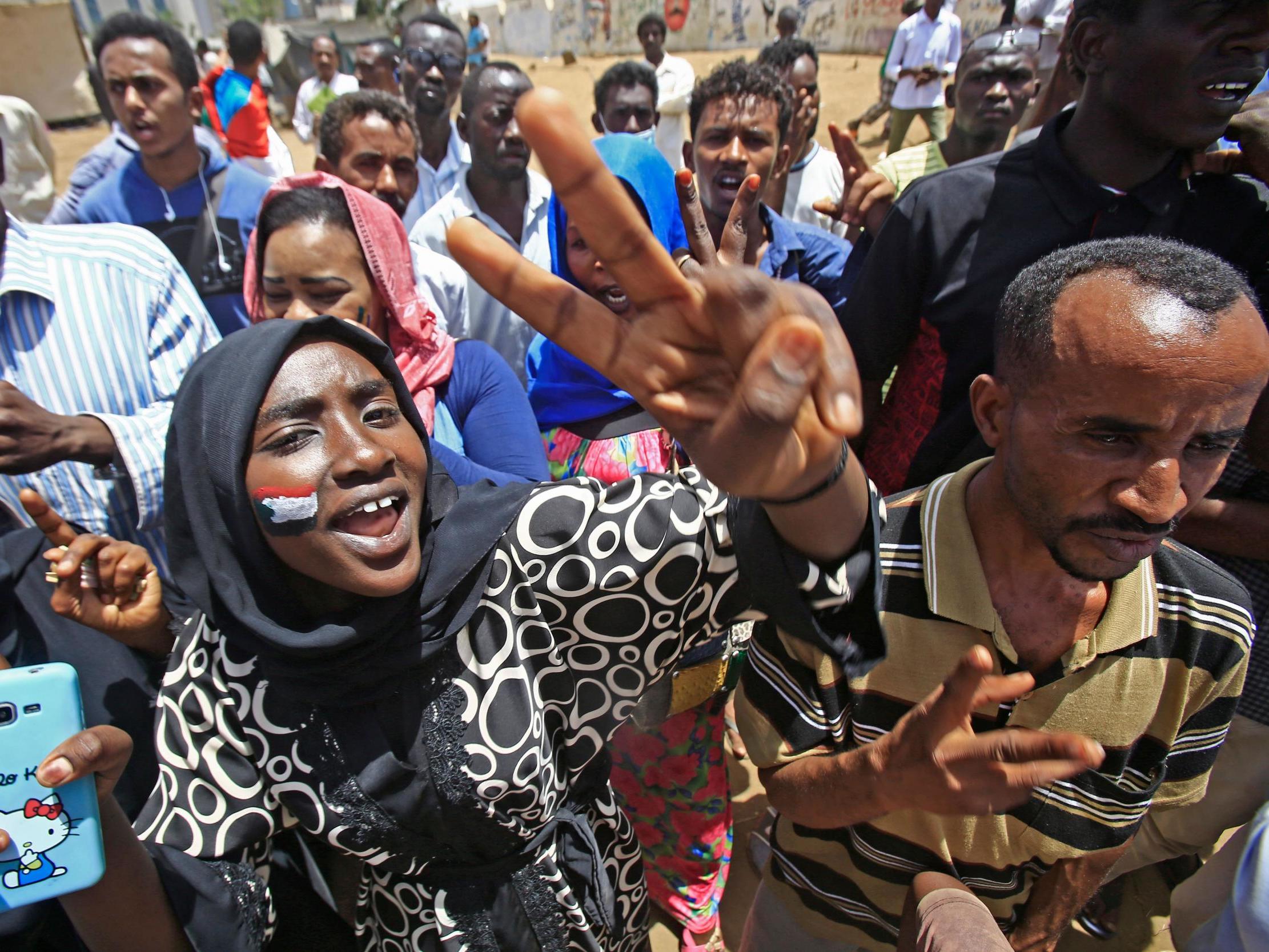Murder wasn’t the only atrocity inflicted on Sudanese protesters – they were raped too
Amid the state refusal of an independent investigation into what happened, citizens worry that all will be swept under the carpet


“They kept yelling: ‘Today we f***.’ The girl screamed. Then everyone went silent.”
The chilling testimony from Fateh, a Sudanese protester, is hard to listen to.
He is describing 3 June when feared paramilitary group, the Rapid Support Forces, which has been accused by rights groups of committing war crimes in the past, brutally cleared a pro-democracy sit-in outside the military headquarters in Khartoum.
Fateh and a group of male protesters were hiding beside aluminium store rooms on the top of a building, just 200 metres west of the encampment, after security forces opened fire.
Protesters had refused to leave until there was a swift transition to civilian rule, after successfully toppling the president, Omar al-Bashir.
And so in early hours of 3 June, security forces, armed with machine guns and whips, had stormed the camp. By the end the day more than 120 people would be dead, according to the Sudan Doctors Committee. The official death toll is just over 60.
But in the metal rooms near where Fateh was hiding, a different kind of horror was unfolding.
Protesters and medics have told The Independent that aside from the killing, mass rape was committed that day. Dozens of women and men were reportedly sexually assaulted. Children were also believed to be among the victims.
They say an independent investigation into what happened needs to be launched immediately.
“The girl and the two guys with her were trying to escape from the meal room. But the RSF forced them back to the room and then let the guys leave,” Fateh says, his voice beginning to falter.
One would rape her, then leave and put on the clothes, then his comrade would enter, and so on
“I can't tell how many raped the girl. One would rape her, then leave and put on the clothes, then his comrade would enter, and so on. They all wore Rapid Support Forces uniforms.”
The fate of the woman is unknown.
This week, the ruling Sudanese military council finally admitted that it had ordered a partial clearing of an area near the sit-in, but maintained it went wrong and that some members of the security forces had committed “painful and outrageous” violations during the onslaught.
“We feel sorry for what happened,” said Gen Shams Eddin Kabashi, a spokesman for the council, adding that several officers were now in jail.
“We will show no leniency and we will hold accountable anyone, regardless of their rank, if proven to have committed violations.”
Two days later RSF’s feared commander, Gen Mohamed Hamdan Dagalo (“Hemetti”), defended his force at a rally in a village on the outskirts of Khartoum.
Hemetti is the deputy chief of the ruling military council despite being accused of perpetuating crimes against humanity in the war-ravaged region of Darfur.
“Our image as Rapid Support Forces has been distorted,” he told the cheering crowds.
The military have said they will carry out their own investigation about what happened. They have rejected requests from actors like Tibor Nagy, a US envoy for Africa, who last week urged an “independent and credible” probe.
Hemetti said he would not talk about what happened until the security forces release their own findings.
And this is what protesters fear right now – that this will all be swept under the carpet plunging Sudan back into the very dictatorship that the protesters had fought against.
“The killings are ongoing, the transitional military council are lying, their hands are full of blood. There is no way they could deny what happened,” says Sara, whose name has been changed and who was also at the protest when it was cleared.
She says they need to be held accountable for the murders and assaults but feels that the international community is supporting the Sudanese army and so nothing would truly come to light.
“We are resisting the regional forces, like Saudi Arabia, the UAE, Egypt, which are deeply involved in Sudanese politics,” she says. “This is a regional war we are fighting here – we are still keeping it peaceful despite the violence.”
Join our commenting forum
Join thought-provoking conversations, follow other Independent readers and see their replies
Comments